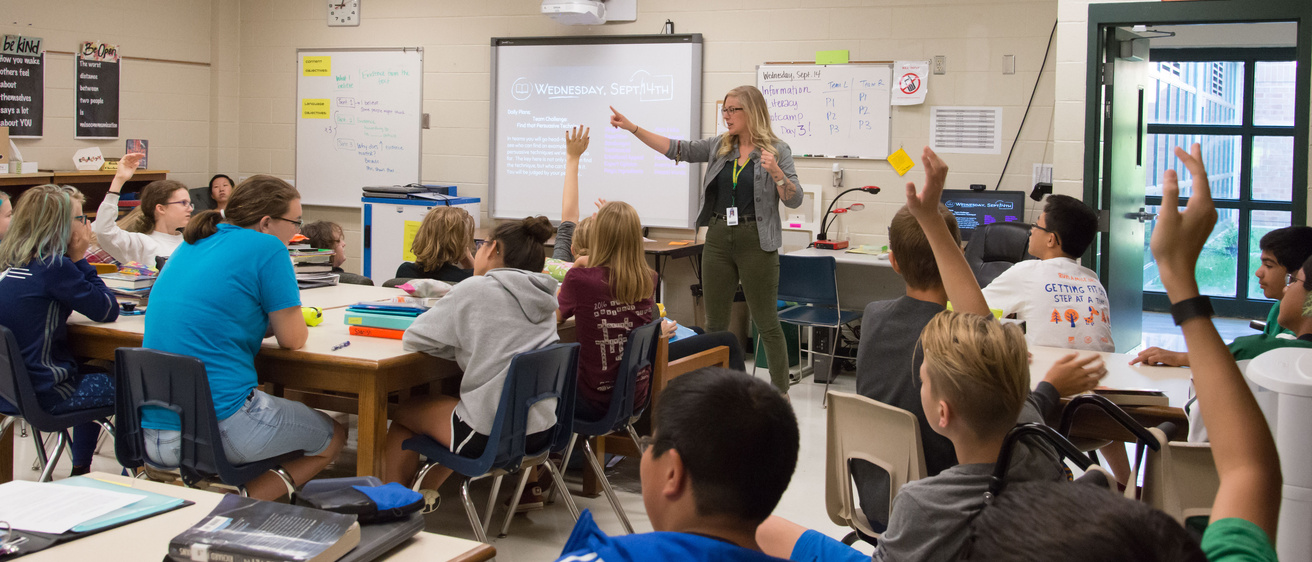The study of language is at the heart of our program. Students in the English Education program learn the day-to-day work of being an English teacher while also critically reflecting on and evaluating the current educational system and the curricular and teaching norms of our content.
Our students become committed classroom teachers who uplift, empower, and support their students through the written word, helping them find their voice so they, too, can advocate, validate, and articulate for themselves and others.
Questions
Programs with Teacher Licensure
BA English Education
The BA is a dual-degree program that prepares students for teaching on the secondary level, grades 5-12. Students in this program earn a degree in English and a degree in English Education.
MAT English Education
The MAT is a graduate degree that provides both a Masters in teaching English and a certification to teach secondary English. It is designed for students who already have an English major or a major in a related subject but little to no coursework in education.
Programs (Non-licensure)
MA English Education
The MA program in English Education is designed for practicing teachers to advance their knowledge of theory, research, and how it ties into their practice.
PhD Language, Literacy, and Social Studies Education
Interested in English Education but want to earn your PhD? Check out our Language, Literacy, and Social Studies Education program!
Endorsements
Students in the English Education program or anyone with a degree in English Education from the state of Iowa are eligible to complete endorsements. The University of Iowa College of Education is the only institution that offers some of these endorsements that will make you a stand-out applicant. School administrators value these endorsements when looking for new hires.
Reading Education
The Reading Education Endorsement is for students interested in teaching reading or literary strategies and provides you with a better understanding of the reading process and the knowledge and skills to be an even better practitioner.
English Language Arts
The English Language Arts added endorsement prepares you to teach areas like speech, drama, and journalism. These skills are highly desirable for teachers and the College of Education is the only institution that offers this streamlined endorsement.
English Language Learners
The English Language Learners (ELL) Endorsement teaches you concepts and strategies for effective and ethical English language teaching and gives you a competitive edge when applying for jobs.
Talented and Gifted
The Talented and Gifted (TAG) Endorsement allows teachers to work with gifted students of any age and equips educators with the essential tools to understand gifted students' characteristics and unique needs and to promote their talents and well-being.
Licensure Only
The licensure-only program is designed for students who already have an English major or the equivalent coursework, want to become certified to teach English on the secondary level, but do not want to commit to a graduate program (MAT).
Please contact your advisor or sarah-showalter@uiowa.edu for more information.
Teacher Education
Our Teacher Education Program provides diverse experiences with supportive mentors to effectively prepare you for your future classroom.
To learn more about classroom experiences and the Teacher Education program, please visit:
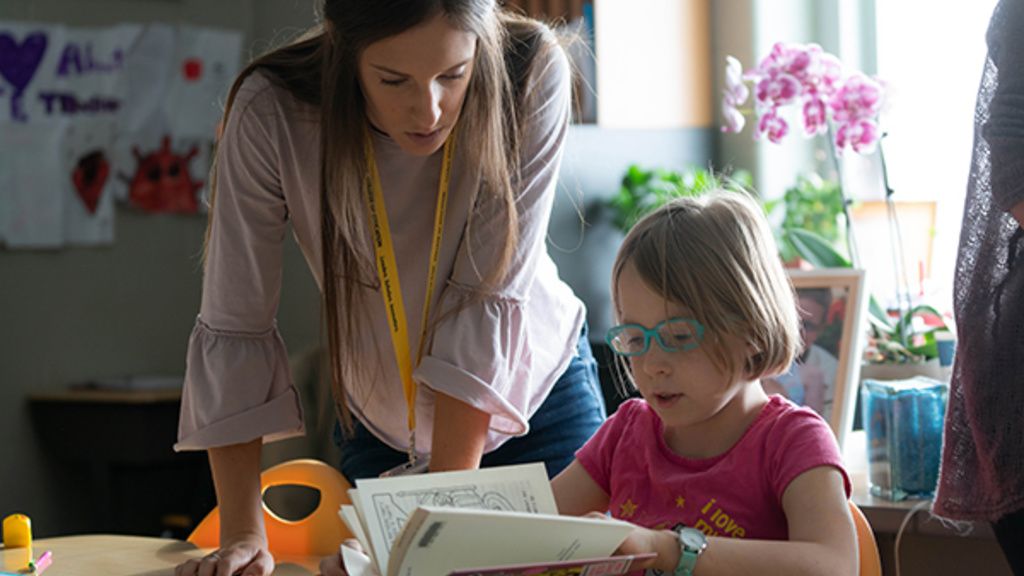
Classroom Experience and Student Teaching
We believe you shouldn’t have to wait until your final semester of college to work with students and make sure teaching is right for you. In your program, you will be given opportunities to work in real classrooms with students from the moment you are admitted to the program.
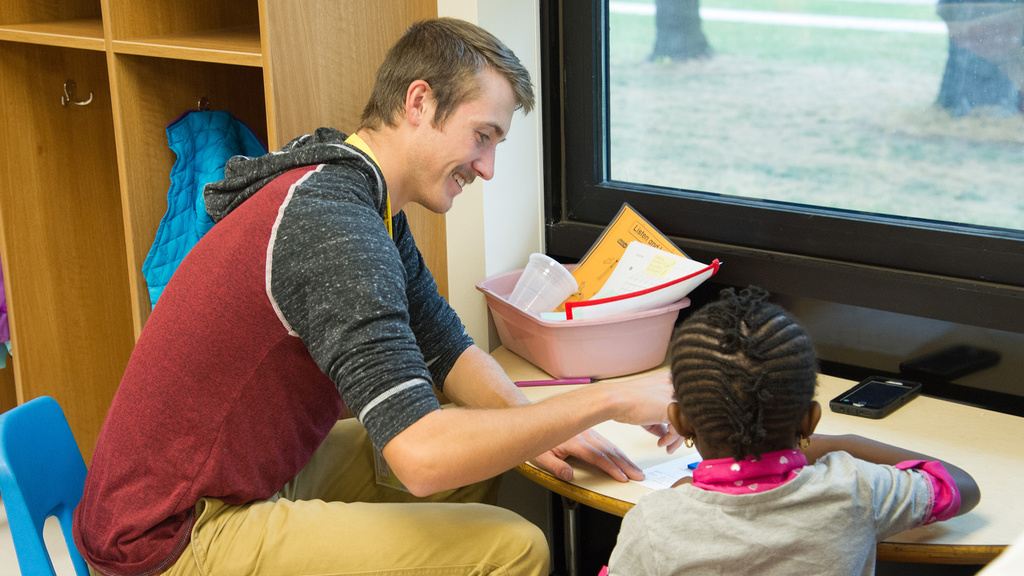
Teacher Leader Certificate
The certificate encourages strong classroom leadership skills, helps you better understand the context in which our schools operate, and enables you to better innovate, improve, develop, and discover your identity as an emerging teacher leader. Prepare to support your students’ social emotional learning needs and become a stand-out hire after graduation.
Writing University
Interested in writing? Take advantage of the rich writing history at the University of Iowa, one of three UNESCO Cities of Literature. The University of Iowa is where writers become authors. As part of the English Education program you can experience everything the famous writing program has to offer while also becoming a licensed teacher.
Faculty and Research
As part of the English Education program, you will learn from faculty skilled in teacher development for English Education teachers. Faculty also engage in research in a variety of areas.
To see associated faculty, please visit: Faculty Listing.
Areas of expertise include:
- Language arts
- Literacy
- Literature
- Writing
- Reading
- Social justice
- Equity, Inclusion and Diversity
- Anti-racism
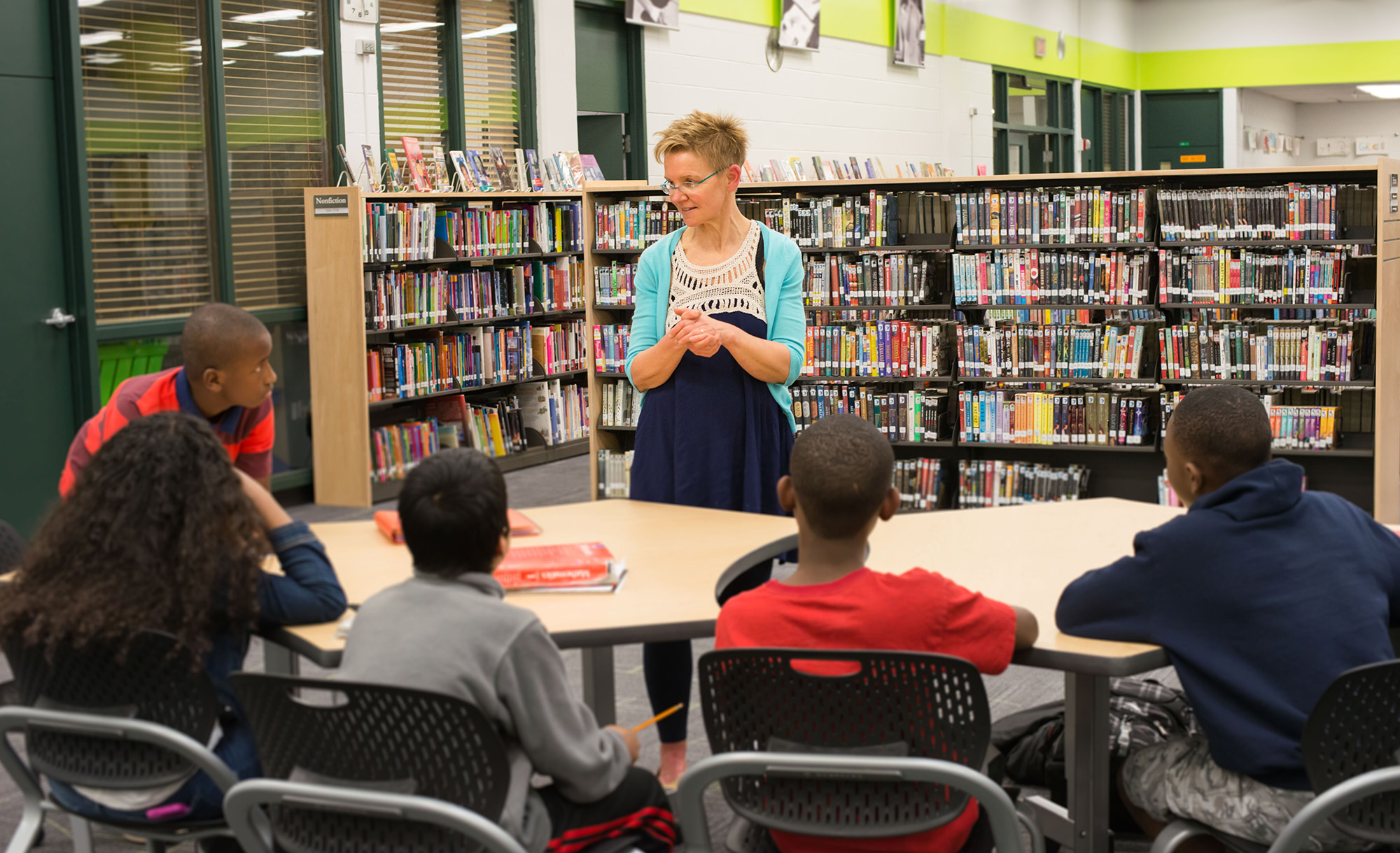
“Thanks to my coursework and wonderful and supportive professors and teaching assistants at Iowa, I’ve learned the importance of building relationships, teaching with an open mind, and engaging students in culturally-relevant texts. I cannot wait to see what the future has in store for me due to the exceptional instruction I received at the University of Iowa.” -Alyssa Guzman (MAT ‘20)
Admissions and Application
Please visit the degree pages for specific admissions information:
Apply Now
Please review the requirements and supplemental documents for your degree option before starting.
Program Resources
Field Experience & Student Teaching
Field Experience
All students in the English Education program participate in three formal classroom field experiences during the course of their program:
- An eight-week field experience of 15 hours/week (120 hours total) in conjunction with EDTL:4314 during the first or second semester in the program
- A shorter six-week field experience in conjunction with EDTL:4315
- Student teaching during the final semester
In addition to these formal experiences, students have many opportunities in their other coursework to interact with secondary-aged students. Partnerships include the following:
- Writing exchanges with the UI Academic Seminar LINK program and students enrolled in Approaches to Teaching Writing
- Writing exchanges with students from Kirkwood Regional Center and students enrolled in Approaches to Teaching Writing
- Partnerships with Kennedy High School, Highland Jr. Sr. High School, and Iowa City High School in which students enrolled in Methods: Reading practice teach reading strategies
- Cross-disciplinary collaboration with Counseling Psychology through Project Hope where students enrolled in Learning to Teach Secondary English/Language Arts participate in a creative writing “intervention” for middle school students in West Liberty and Columbus Junction, Iowa
- Writing workshops in area middle/high schools and the Shelter House in conjunction with the Iowa Youth Writing Project
EDTL:4314 Introduction and Practicum: English/Speech
This course places students in local classrooms for 15 hours/week for eight weeks (120 hours total) of the semester in which students are enrolled and must be taken during a student’s first or second semester in the program. In addition to gaining experience in the classroom, this exposure helps ensure students that teaching is the right career choice for them. Students should plan to take the practicum during a semester where they have a fairly flexible schedule since they will be in schools at least three hours a day. An accompanying Seminar that meets twice a week is also a component of the class. The field experience begins six weeks into the semester, at which point Seminar meets once a week.
In Practicum, students also participate in an after-school tutoring/mentoring program at one of the junior high schools in the Iowa City School District once a week for the entire semester. This is an experience that the class does together, from driving to and from the school in university vans, to collaborating as they assist individual students with their homework, to sharing stories and asking questions about the experience together as a class.
EDTL:4315 Learning to Teach Secondary English/Language Arts & Field Experience
This course places students in a six-week experience twice a week in an area literacy classroom that serves as a home context as they learn the planning process. Placements are generally 4-6 hours a week, totaling 25-30 hours total. The goal of the experience is to have students return to the classroom and view it through the eyes of planning. Most placements are in a classroom in an area school, though sometimes a student has an interest in teaching on the community college level and we generally can accommodate such a request. Other students opt to return to their practicum placement, while still others want to explore a particular placement as a precursor for student teaching.
Student Teaching
EDTL:4087 Seminar: Curriculum and Student Teaching
The student teaching semester is the culmination of any teacher-education program It allows teacher candidates to apply knowledge from their coursework to a real teaching situation over an extended period of time. This is the most vital and critical phase of a teacher’s preparation; the goal is to professionalize teacher candidates as confident, informed, reflective practitioners who are committed to students’ learning, passionate and knowledgeable about their subject, and grounded in theory. We are proud of our English Education graduates. Many of them serve as mentors to our student teachers regularly.
STUDENT TEACHING PLACEMENT
Our placement assignments provide optimal growth for each of our teacher candidates. We are careful to select each school, classroom, and cooperating teacher with each student teacher in mind. Each student teacher works one-on-one, all semester, with both the supervising classroom teacher and a carefully selected college supervisor who has had prior experience as a classroom teacher. The English Education program is diligent about finding supervisors and area cooperating teachers who are enthusiastic mentors, highly competent colleagues, and familiar with the theories and practices we teach. Our partnerships with area schools are strong, supportive, and reflect longtime working relationships. In addition, each student teacher attends a weekly on-campus seminar that considers common concerns related to the teaching of English and preparatory materials for the job market: the resume, the teaching philosophy, the electronic portfolio, the interview process. We make every effort to create a positive learning experience for each student teacher, a model for what we hope they’ll do for their own students.
SPECIAL-SITE PLACEMENT
Most of our English Education students spend their student teaching semester at schools within driving distance of the University of Iowa; however, a few candidates apply each semester for permission to student teach at a special site. The College of Education has established partnerships with a number of school districts that allow our teacher candidates to experience both urban and rural, more linguistically diverse school settings different from the area surrounding the university. These include Aldine, TX; Rialto, CA; and Las Vegas, NV. Our students apply, too, for special sites in the Chicago area and within driving distance of the other Iowa Regents’ Institutions (the University of Northern Iowa in Cedar Falls and Iowa State University in Ames).
Special-site placements require that the student teaching responsibilities be completed without the support of the university community (seminar assignments, e-Portfolio requirements, application for licensure, consultations with peers and professors). While student teachers at special sites do maintain contact with a selected University supervisor, they miss the weekly support of others who are familiar with the program’s course of study. For these reasons, our application for special site placement requires additional steps and a thorough review by the English Education faculty. We base our collective faculty decisions on students’ ability to work independently and overall performance in the program. For this reason, we strongly advise our students to discuss their special site plans with their faculty advisors before applying.
PROCEDURE FOR APPLYING FOR A SPECIAL-SITE PLACEMENT:
- Submit the special-site application along with your student teaching application (available from the Office of Student Field Experiences) one full academic year before the student teaching semester.
- Write a clearly articulated rationale (500-800 words) that explains your reason(s) for a special-site placement, and submit it with your application.
- Maintain a 3.0 overall University of Iowa grade point average and in your program area.
- To be considered, we expect you to demonstrate qualities of independence, maturity, and ability to meet deadlines throughout your course of study.
Courses
The English Education program in the Department of Teaching and Learning offers a variety of courses to satisfy the requirements for graduation. You'll find information regarding course offerings as well as the frequency with which courses are offered on these pages to help you plan your program of studies.
EDTL:4314 Introduction to Practicum: Secondary English
One section of this course is offered every fall and spring semester.
Introduction to Practicum is the first formal course on the journey to becoming an English teacher. This course immerses students into real classrooms and schools to work with secondary-aged students and experience public school education through the eyes of a teacher. To meet these ends, students work in and observe an English classroom in one of the area secondary schools and participate in an after-school mentoring program at a local junior high school. In these placements, students plan, instruct and assess, working closely with a cooperating teacher to observe and practice the act of teaching, and discuss and reflect on their experiences. The weekly class meeting time allows students to explore the complexities of teaching English/language arts through reading selected articles and discussing them. The main goal is for students to study the English classroom with the hopes of them gaining a better understanding of their chosen profession and their own philosophies as emerging teachers.
EDTL:4315 learning to teach secondary english/language arts & Field experience
One section of this course is offered every fall and spring semester.
This course provides students a time and a place to practice “thinking like a teacher.” It is a place to synthesize coursework and develop a teaching philosophy that is unique to your own professional persona. The class explores a variety of instructional strategies and assessments to appeal to different learners in the classroom. Students create lessons and unit plans, discussing the purpose of daily goals and overarching objectives as well as the current realities of teaching English today and how different societal aspects impact the classroom. You will serve as one another’s audience, assessor and support network as you plan, teach, evaluate your own learning and that of your students. The requirements for this class are structured to prepare you for student teaching and your own future classrooms. The main course objective is to socialize candidates into the profession as a new teacher who is committed to student learning, passionate and knowledgeable about their subject matter, and grounded in a theoretical framework that creates a confident yet reflective practitioner. A six-week placement in a literacy classroom serves as a home context for a portion of the planning in this class.
EDTL:4355 Approaches to Teaching Writing
One section of this course is offered every fall and spring semester. If it meets minimum enrollment, a section is sometimes offered in one of the Summer sessions.
This course is designed in three layers--the practice of writing itself, the theory and pedagogy of the teaching of writing, and the understanding of how to watch both. One half of our class time will be a collaborative workshop configuration. We will draft, read, share drafts in conferences and response groups, and "publish" the pieces we write in formal "read-arounds." During the other half, we will respond to the readings, the theory, and learn how to work in the classroom with the techniques we are using in the "practice" layer. In short, I hope this course will give you "praxis," theory applied to practice. The two are inextricably tied. One of my teachers, Donald Graves, liked to say, "There is nothing so practical as a good theory." I hope you’ll agree. We try to find opportunities to work with local student writers through the public schools and here at the university. I’ve always maintained that the best way to learn to teach writing is to “go head to head” with another student writer.
EDTL:3382 Language and Learning
At least one section of this course is offered every fall and spring semester. If it meets minimum enrollment, a section is sometimes offered in one of the Summer sessions.
Intended primarily for elementary and secondary pre-service language-arts teachers, this course focuses on the nature of linguistic development and performance. We’ll read works that reflect a range of scholarly approaches to language study, explore language use both in and out of school, and consider implications for classroom teaching. Students will be expected to reflect thoughtful habits of mind in class activities and discussions, plan instructional sequences that promote awareness of linguistic diversity, and demonstrate understandings of young people’s language practices and learning.
EDTL:3393 Reading and Teaching Adolescent Literature
One section of this course is offered every fall and spring semester and sometimes online. If it meets minimum enrollment, a section is sometimes offered in one of the Summer sessions.
In this course, we will be immersing ourselves in a range of literary texts at the same time that we are thinking through the multiple ways in which those texts and teachers and students interact with one another. Our goals will be to become familiar with ourselves as readers of literature, with the conventions that shape the ways literature is read and taught in school, and with the wide variety of literature intended for the young adult reader
EDTL:4394 High School Methods Reading
One section of this course is offered every fall and spring semester.
This course is designed to bring together theory and methods of teaching literacy with developing an understanding of the literacy needs and preferences of adolescents. A main focus of this course is understanding and appreciating the many purposes of literacy, while also exploring teaching methods and techniques that will help adolescent readers make the most of their literacy experiences. Throughout the course of our study, we will read a range of texts appropriate for English/language arts classrooms and will utilize a variety of activities and strategies for literacy these, and other, texts. The course will attempt to blend theory and practice in such a way that students in the course will both understand some basic elements of what to teach and how to teach it, as well as how thinking about literacy in ways that will benefit secondary students. The progression of the course is designed to build upon the knowledge we develop through our literacy and activities; we will begin the semester with trying to define the teaching of literacy for ourselves and our study will build upon what we learn about ourselves as readers – and as teachers – as the course progresses.
EDTL:6315 MA Seminar
This course is offered in the fall semester only.
What does it mean to be a fully “literate” person in these new times-and how to define the study of “English”? Where have we been as a field and where are we going? Is English something one comes to “know”, something one does, or both? Is it best seen as a discrete subject, or as a set of concerns that cut across the curriculum? How do political and institutional contexts shape our work as teachers of English? How to convince policy-makers and parents that our English courses are offering understandings and opportunities of key significance? We'll explore an array of such questions, from various perspectives and along multiple pathways through reading, writing, discussion, and our own research.
EDTL:4087 Seminar: Curriculum and Student Teaching
This course is offered in the fall and spring semester.
As an accompaniment to student teaching, Seminar is a course that helps you make sense of your student teaching experience. It provides a forum for you to converse with other student teachers of English, to explore your question about student teaching with an eye towards your own professional career. Every week we discuss the various aspects of teaching in general, such as planning, instruction, assessment, and classroom management, as well as delving into the unique characteristics of English/language arts teaching. Students are required to show evidence of their short- and long-term planning, their ability to reflect on their teaching practices, and their understanding of instructional strategies and assessment. We work on professional portfolios.
EDTL:4091 & EDTL:4092 Student Teaching
Student Teaching is offered in the fall and spring semester.
The student teaching semester is the culmination of any teacher-education program. It allows teacher candidates to apply knowledge from their coursework to a real teaching situation over an extended period of time. This is the most vital and critical phase of a teacher’s preparation; the goal is to professionalize teacher candidates as confident, informed, reflective practitioners who are committed to students’ learning, passionate and knowledgeable about their subject, and grounded in theory. We are proud of our English Education graduates. Many of them serve as mentors to our student teachers regularly.
News
Coleman garners national awards for ‘Banned Childhoods’ project
James Joshua Coleman, assistant professor of English education, is the recipient of two Children’s Literature Assembly awards for his research on how activism challenges beliefs that ban LGBTQ+ children’s literature from libraries and schools.
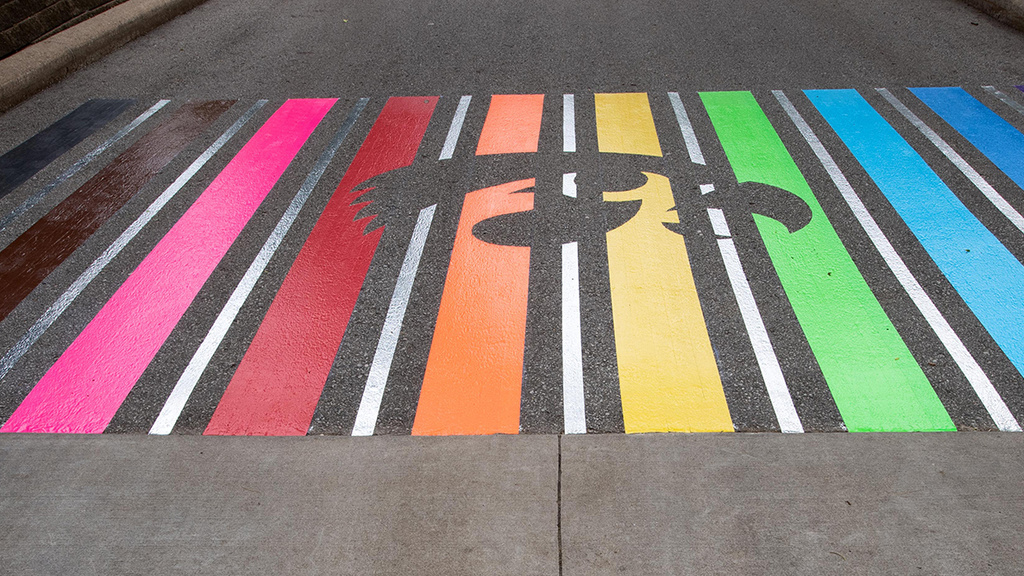
Coleman selected as national fellow to study book-banning practices and LGBTQ+ activism
James Joshua (Josh) Coleman, assistant professor of English education, is the recipient of a National Academy of Education (NAEd)/Spencer postdoctoral fellowship to research book-banning practices and LGBTQ+ educational activism in the Midwest.
Contact Us
Program Coordinator
Sam Tanner
N240 Lindquist Center
319-467-3106
samuel-tanner@uiowa.edu
Contact Us
We're here to help:
ask-education@uiowa.edu
